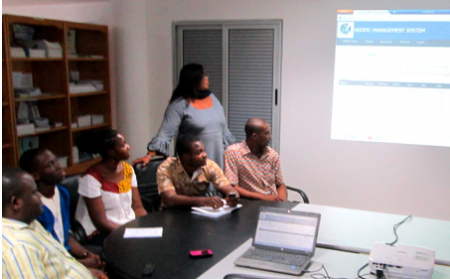- Projects & Programmes
- Building a reliable energy access database for sustainable energy expansion in Ghana
Our Portfolio
Building a reliable energy access database for sustainable energy expansion in Ghana
Background
Access to reliable and robust energy data is a key requirement for effective energy planning – and for the economic growth that it drives. Currently, Ghana’s energy data is scattered among many organisations who do not always make it accessible. This impedes the expansion of access to clean energy.
To address this issue, an Energy Access Data (EAD) task force was set up at a meeting of energy sector board chairs and CEOs in 2011 to facilitate the development of a shared energy database. The goal is to bring data together under one umbrella and to make it accessible on the energy commission’s website. This will guarantee that energy policy-makers, clean energy investors, app developers and the general public can make informed decisions.
The initiative will also help widen the data in the GIS-based Energy Access Review (GEAR) Toolkit, an interactive decision support tool for energy access policy –makers based on a Geographical Information System (GIS).
Purpose
To open up energy access data and support informed decision-making in Ghana by establishing and operating a one-stop centre at the Energy Commission to disseminate reliable energy data and information to staff, policy-makers, business and the public
Image (left): The database resulting from this project will feed into the National Energy Data Processing and Information Centre (NEDPIC).

Main Activities
- Collect and systematise all energy access data with emphasis on renewable energy and energy efficiency
- Creation of an energy database populated with all relevant statistics
- Include specific indicators such as energy type by percentage, rates of access to clean cooking fuels and electricity, total energy obtained from grid, mini-grid and off-grid sources, overall energy use, and savings from efficiency interventions
- Train selected journalists on use and reporting of energy access data
- Publish a Ghana Energy Access Review Report (GEAR Report) containing the systematized data and results from the analysis
- Disseminate the data to key stakeholders at district, national and international levels
Expected Impact
- Concentration of all energy and energy-relevant data in Ghana into one database available to all
- Unleashing of entrepreneurial activity thanks to free availability of energy data to policy-makers, researchers, students, investors
- Contribution to Government setting and measurement of achievable renewable energy and energy efficiency targets